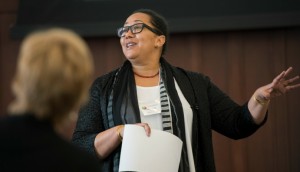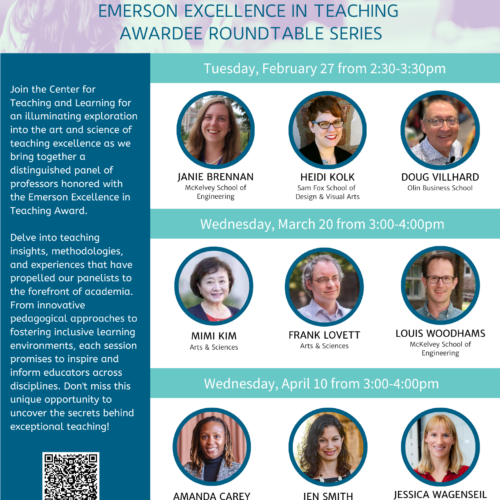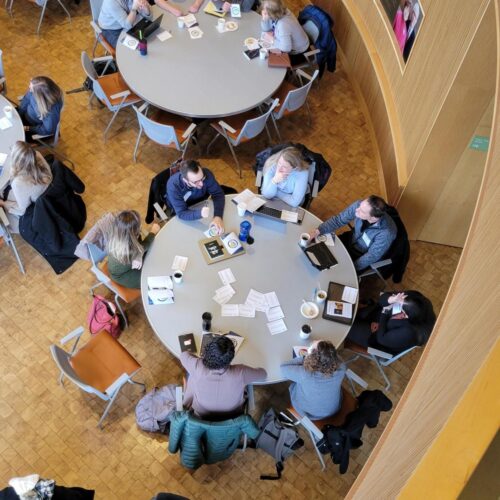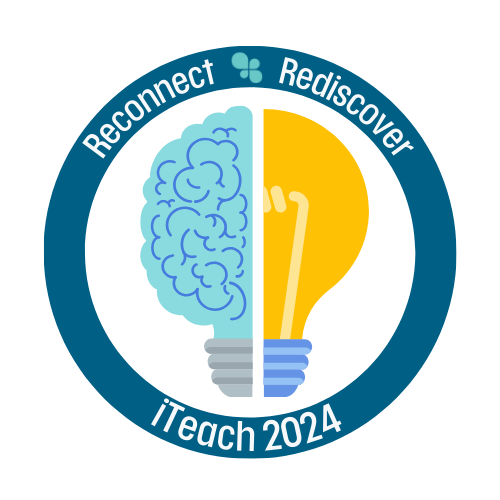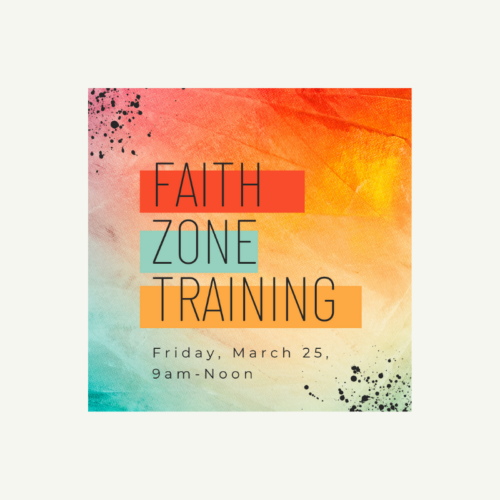iTeach 2016 Symposium: Exchanging Ideas on Teaching
iTeach, Washington University’s biennial symposium on teaching, drew 195 participants to The Knight Center on January 13. The iTeach symposium brings together faculty from all seven schools to share ideas and insights on teaching, and to learn about research on teaching and learning. Topics discussed at iTeach 2016 ranged from integrating active learning and group work to community-based teaching and digital tools for textual analysis. Session materials are now available.
Provost Holden Thorp opened the symposium with welcoming remarks on the growing interest in improving teaching and learning at Washington University—which includes making changes that can make our campus a more inclusive learning environment. A plenary panel on inclusive teaching and learning at Washington University followed. 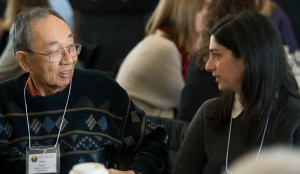 Beth Fisher (The Teaching Center and Women, Gender, and Sexuality Studies) began the plenary by defining inclusive teaching and learning as informed by three goals: equity, fairness, and innovation. Vice Provost and Professor Adrienne Davis (Law) and Jennifer M. Kapczynski (Germanic Languages & Literatures) described examples of how a focus on inclusion has changed their teaching, and Fisher discussed changes to Peer-Led Team Learning in General Chemistry.
Beth Fisher (The Teaching Center and Women, Gender, and Sexuality Studies) began the plenary by defining inclusive teaching and learning as informed by three goals: equity, fairness, and innovation. Vice Provost and Professor Adrienne Davis (Law) and Jennifer M. Kapczynski (Germanic Languages & Literatures) described examples of how a focus on inclusion has changed their teaching, and Fisher discussed changes to Peer-Led Team Learning in General Chemistry.
After providing participants with an opportunity to discuss how they would each like to address inclusion in their teaching and learning environments in 2016, the three panelists provided information about new programs and initiatives focused on inclusive teaching and learning—including the Standing Committee on Facilitating Inclusive Classrooms (co-chaired by Kapczynski and Rochelle Smith, with Dillon Brown acting as interim co-chair in 2016) as well as a two-day faculty summer institute on inclusion and diversity.
Session Highlights
Mark Alford (Physics) and Kristen Naegle (Biomedical Engineering) led a discussion of Whistling Vivaldi, Claude Steele’s book on stereotype threat. Stereotype threat refers to a phenomenon in which students’ concerns about confirming a negative stereotype may impair academic performance. Alford and Naegle employed a series of potential situations in which students can be affected by stereotype threat as a basis for identifying specific strategies instructors can use to defuse this threat. Such strategies included countering stereotypes by providing examples of contributions by individuals from historically underrepresented groups; providing formal and informal mentoring opportunities; and communicating confidence that all students can learn and succeed.
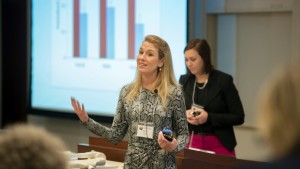 Several sessions focused on integrating active learning. For example, Megan Daschbach (Chemistry) and Mairin Hynes (Physics) described how they have been incorporating active learning with student-response systems, or “clickers,” into large, introductory courses. Daschbach and Hynes led a discussion of the benefits and challenges of teaching with clickers, and they stressed the importance of careful construction of clicker questions, offering examples of question types. Mike Cahill (CIRCLE) and Erin Solomon (CIRCLE and The Teaching Center) presented preliminary results from a multi-year study (supported by the AAU Initiative on Improving STEM Education) on the integration of clicker questions in STEM courses including Daschbach’s and Hynes’s. This study suggests there is a positive relationship between student participation with “clickers” and student performance in the course. Lorien Carter (Social Work) and Jenine K. Harris (Public Health) introduced participants to the fundamentals of the flipped classroom and discussed teaching with clickers in smaller courses. The presenters certainly practiced what they preached: participants used clickers throughout the session to share their perspectives on the material.
Several sessions focused on integrating active learning. For example, Megan Daschbach (Chemistry) and Mairin Hynes (Physics) described how they have been incorporating active learning with student-response systems, or “clickers,” into large, introductory courses. Daschbach and Hynes led a discussion of the benefits and challenges of teaching with clickers, and they stressed the importance of careful construction of clicker questions, offering examples of question types. Mike Cahill (CIRCLE) and Erin Solomon (CIRCLE and The Teaching Center) presented preliminary results from a multi-year study (supported by the AAU Initiative on Improving STEM Education) on the integration of clicker questions in STEM courses including Daschbach’s and Hynes’s. This study suggests there is a positive relationship between student participation with “clickers” and student performance in the course. Lorien Carter (Social Work) and Jenine K. Harris (Public Health) introduced participants to the fundamentals of the flipped classroom and discussed teaching with clickers in smaller courses. The presenters certainly practiced what they preached: participants used clickers throughout the session to share their perspectives on the material.
Barbara Baumgartner (Women, Gender, & Sexuality Studies) and Robert Henke (Drama and Comparative Literature) described their experiences teaching in the Washington University Prison Education Project, a three-year pilot program in which faculty are teaching a range of courses at a medium-security prison in Pacific, Missouri. A former participant, Damon Hartley, offered his perspective on the program, which he described as a “life-changing” chance to find clearer direction and his own voice.
Enthusiastic feedback suggests that iTeach energized participants at the start of a new semester. We look forward to the next iTeach in January 2018.
iTeach is co-sponsored by Arts & Sciences, the University Libraries, and The Teaching Center and the Office of the Provost. For questions about iTeach, please contact Beth Fisher.
